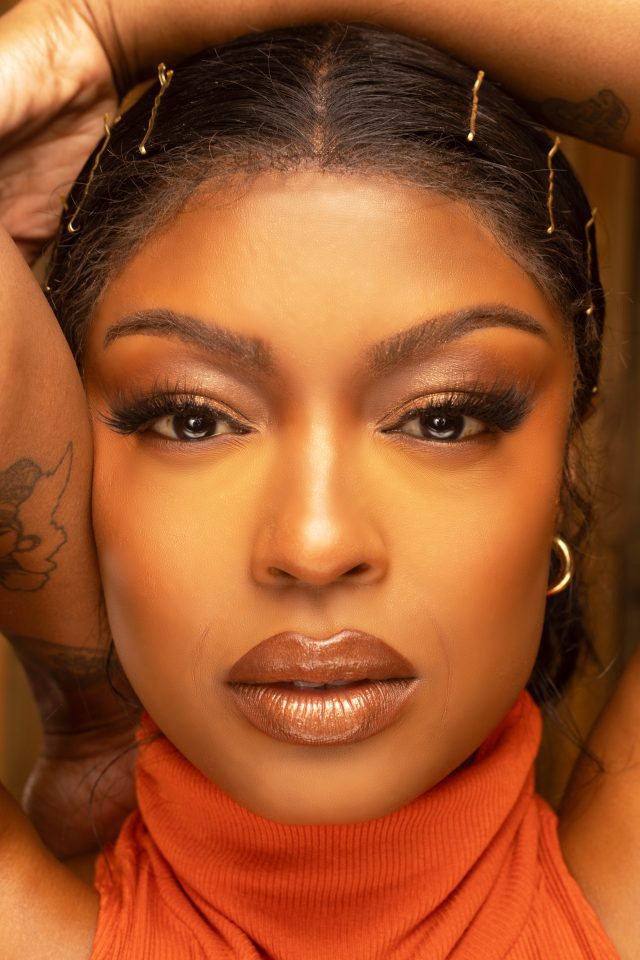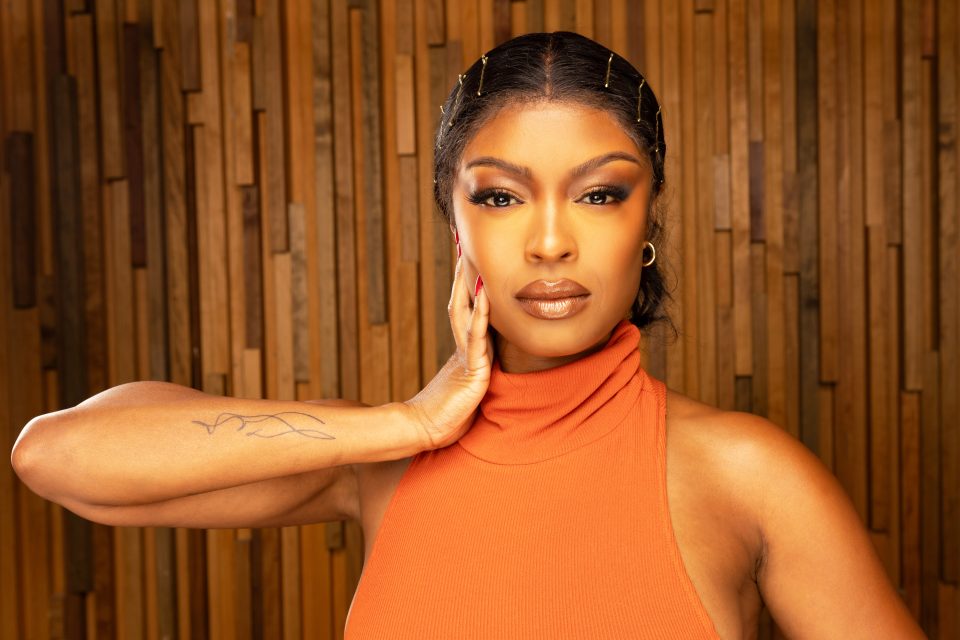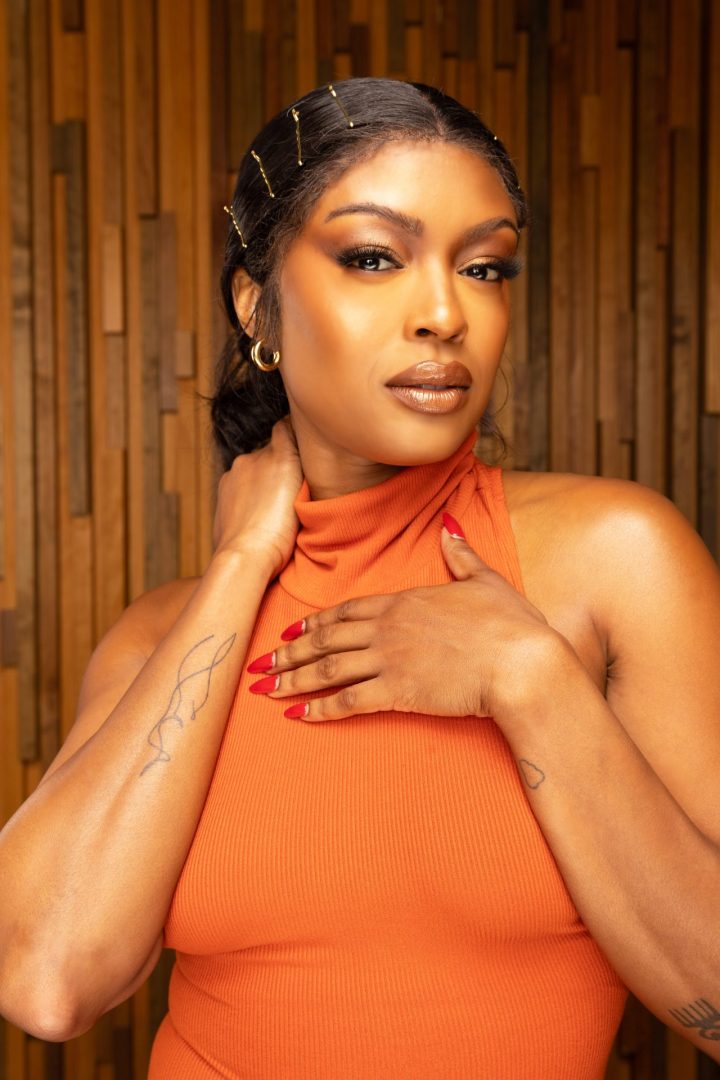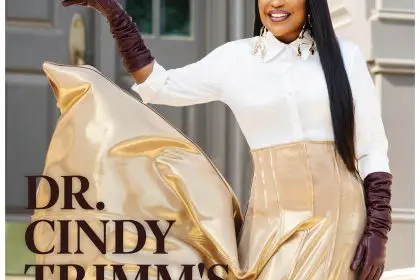At rolling out‘s studio, Javicia Leslie settles into her seat with the easy confidence of someone who knows exactly who she is. In the landscape of modern Hollywood, where overnight success stories often grab headlines, she stands as a testament to the power of measured steps and unwavering determination. “I took every step,” she reflects, her voice carrying the quiet confidence of someone who has earned their place. “I never jumped any steps.”
Leslie’s journey to stardom reads like a masterclass in intentional progression. From her early days performing in talent shows to treading the boards at Hampton University‘s theater department, she built her foundation brick by brick. Even when success knocked on her door—a comfortable government job with promising prospects—Leslie heard a different calling. “I had a nine-to-five, working for the government, doing really well for myself,” she recalls, “but I knew I had to follow my dreams.”
That decision led her to Los Angeles, where she approached her craft with the same methodical dedication that marked her earlier years. From online content to commercials, from Lifetime movies to series regular roles, Leslie’s ascent has been steady and purposeful. Now, as she simultaneously commands screens in BET Plus’s “The Family Business” and ABC’s “High Potential,” she demonstrates the range that comes from such careful cultivation of one’s craft.

In “The Family Business,” Leslie embodies Paris Duncan, the youngest daughter of a crime family boss, in what she describes as “a Black version of ‘The Sopranos.’ ” The role challenged her to explore dimensions far from her natural disposition, pushing her into territory that was “bold, sassy, very sexual.” Working alongside legends like Ernie Hudson and Valerie Pettiford, she found herself in a masterclass of Black excellence.
Yet Leslie’s versatility shines through in her role as Daphne on “High Potential,” where she portrays a Black police officer in Los Angeles. “There’s this important conversation about policing in Black communities,” she notes, “and I love showing a positive side of policing in our communities.” The significance of representing such complexity isn’t lost on her—it’s precisely the kind of meaningful storytelling she seeks.
Behind the camera, Leslie is equally ambitious. Her directorial projects, including the award-winning short film Black Excellence, explore the nuances of Black family life and social justice. Currently, she’s crafting a script about a young Kenyan girl’s journey to save her sister, further exemplifying her commitment to telling diverse, meaningful stories.
The Hampton University graduate (and recent 40 Under 40 inductee) maintains strong connections to her roots. Her alma mater provided more than education—it offered a network that would prove invaluable in Hollywood. “It allows me to feel like I have someone to go to who looks like me for anything I may need,” she explains, highlighting the enduring power of HBCU communities.

Leslie’s approach to wellness is as intentional as her career path. Her rigorous fitness routine combines Pilates, weight training, and cardio, complemented by a focused nutrition plan. Mental health receives equal attention through therapy, journaling, and the companionship of her dog. “I’m very self-aware,” she says, discussing her dedication to personal growth.
When asked about taking up space in an industry known for its constraints, Leslie’s response resonates with hard-won wisdom: “It’s scary, I know, because you feel like all eyes are on you. But it’s one of the most healing and bravest things you can do for yourself.” Her philosophy extends beyond personal achievement to community impact: “Taking up space encourages others who may look like you or have gone through similar obstacles to see that they can still walk with their head up.”
For aspiring artists, Leslie’s advice is characteristically grounded: “Go back to the basics. Read books, take classes.” Even now, at the height of her success, she continues to study her craft, currently considering improv classes at Groundlings. It’s this commitment to growth, this refusal to rest on laurels, that sets Leslie apart in an industry often seduced by shortcuts.
In Leslie’s story, we find a blueprint not just for success, but for meaningful impact. As she continues to evolve as an actor, director, and storyteller, she demonstrates that taking up space isn’t just about being seen—it’s about creating room for others to follow. “You have one life,” she reminds us, “and you can’t live it being scared.”
Photography by Steven Randall













